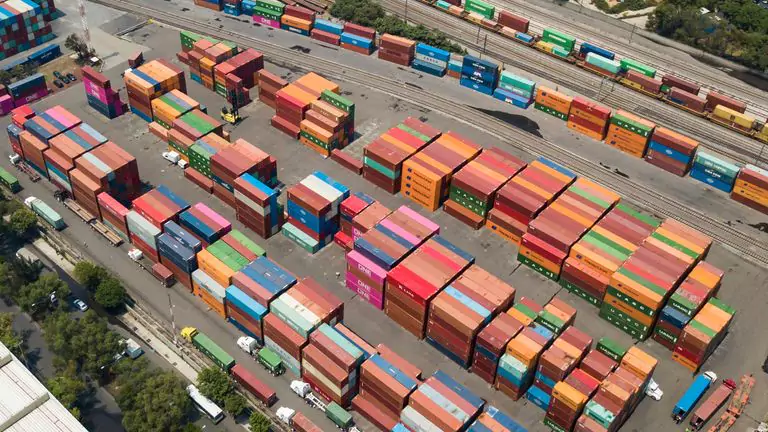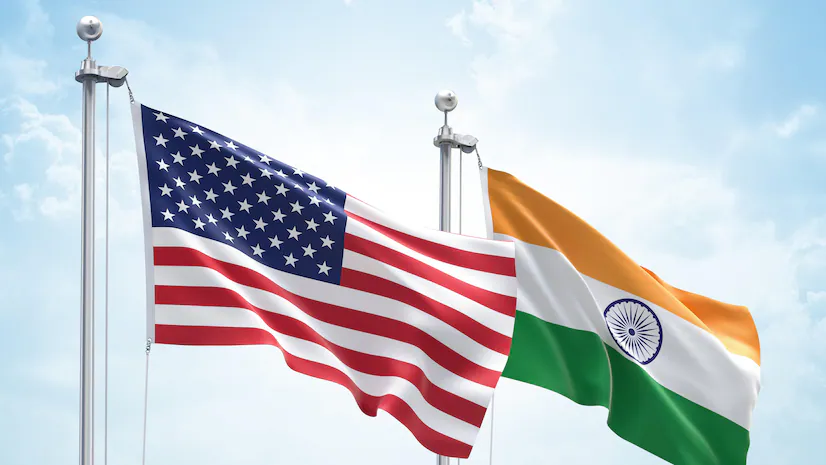US-Reciprocal Tariffs
US President Donald Trump criticised the high tariffs charged by India and other countries terming them "very unfair" and announced reciprocal tariffs from April 2 on nations that impose levies on American goods.
"On Average, European Union, China, Brazil, India, Mexico and Canada charge higher tariffs than we charge" - Trump
"It is very unfair. India charpes us auto tariffs higher than 100%” - Trump
India is silent on this, but in contrast China, Mexico, Canada, have announced Counter - reciprocal tariffs on US goods, China and Canada have also filed complaints with the World Trade Organization (WTO).
| India’s total exports to the US - $52.9 billion | India’s total imports from the US - $29.6 billion |
|---|---|
|
Top Exports: Electrical machinery Precious stones / metals Pharmaceuticals |
Top Imports: Mineral fuels and oils Precious stones / metals Nuclear reactors and boilers |
Key Terminology to be Known in Economy
- Customs Duty: Customs duty is a tax levied on goods when they cross international borders. It is to regulate trade, protect domestic industries, and generate revenue.
- Import Duty: Import duty is a tax levied by a country on goods brought from abroad to regulate trade, protect domestic industries, and generate revenue.
- Export Duty: Export duty is a tax imposed by a country on goods being exported to regulate trade, ensure domestic supply, and generate revenue. It is usually applied to specific commodities like minerals, petroleum, or agricultural products to control their outflow and stabilize local markets.
- Excise Duty: Excise duty is an indirect tax imposed on the production, sale, or consumption of specific goods within a country. It is primarily levied on items like alcohol, tobacco, and fuel to generate revenue and regulate consumption. It was replaced by GST.
- Countervailing Duty: Countervailing Duty (CVD) is a tax imposed on imported goods to counteract subsidies given by the exporting country's government. It ensures fair competition by neutralizing price advantages, protecting domestic industries from unfair trade practices, and aligning prices with market conditions.
- Anti-Dumping Duty: Anti-Dumping Duty is a protectionist tariff imposed on imported goods when they are sold at a price lower than their normal value in the exporting country. It prevents market distortion, protects domestic industries from unfair competition, and ensures fair trade practices.
- Protective Tariff: Protective tariffs are taxes imposed on imported goods to shield domestic industries from foreign competition. By making imported products more expensive, they encourage consumers to buy locally produced goods, promoting economic growth and self-sufficiency while reducing dependency on foreign markets.
- Ad Valorem Tariff: Ad Valorem Tariff is a tax imposed on imported goods based on their value rather than quantity or weight. It is calculated as a percentage of the product's price (e.g., 10% of the item's value). This type of tariff adjusts with price fluctuations, ensuring fair taxation.
- Specific Tariff: Specific Tariff is a fixed tax imposed on imported goods based on their quantity, weight, or unit rather than their value. For example, a country may charge ₹50 per kilogram of imported rice, regardless of its market price. This provides stable revenue but does not adjust for price variations.
- Quota Tariff: A quota tariff (Tariff-Rate Quota, TRQ) allows a fixed quantity of imports at a lower tariff, while excess imports face higher tariffs. It balances trade by protecting domestic industries while allowing limited foreign competition, commonly used in agriculture and essential goods.
- Bilateral Agreement: A bilateral agreement is a trade, economic, or political agreement between two countries to promote cooperation. It can cover trade, defense, investment, or cultural exchange. Examples include Free Trade Agreements (FTAs) and defense pacts, benefiting both nations through mutual commitments.
- Free Trade Agreement: A Free Trade Agreement (FTA) is a pact between two or more countries to reduce or eliminate trade barriers like tariffs, quotas, and import restrictions. It promotes seamless trade, boosts economic growth, and enhances cooperation while maintaining certain regulatory standards.
Key difference between Tariff, Duty, Tax, Levy, Toll
- Duty is a specific tax imposed on goods, either imported (import duty) or produced domestically (excise duty). It is a subset of tariffs.
- Tariff is a broader term referring to the schedule of taxes
imposed on imports or
exports to regulate trade and protect domestic industries.
- In short, all duties are tariffs, but not all tariffs are duties —tariffs include various trade barriers beyond just duties.
- Tax is a mandatory financial charge imposed by the government on individuals, businesses, or goods to generate revenue for public services and infrastructure. It includes direct taxes (e.g., income tax) and indirect taxes (e.g., GST, customs duty).
- Levy refers to the official imposition or collection of a tax, fee, or fine by a government or authority. It can apply to taxes like income tax, GST, or penalties, and is enforced by law to generate revenue or regulate economic activities.
- A toll is a fee charged for using a specific road, bridge, tunnel, or other infrastructure. It helps recover construction and maintenance costs. Tolls are usually collected at checkpoints, toll booths, or electronically through systems like FASTag in India.

| Term | Definition | Purpose |
|---|---|---|
| Duty | A specific tax on imports, exports, or certain goods (e.g., customs duty, excise duty). | Regulates trade and generates revenue. |
| Tariff | A broader term referring to taxes on imports/exports, including duties. | Protects domestic industries and controls trade. |
| Levy | The act of imposing or collecting a tax, fee, or fine. | Generates government revenue through taxation. |
| Toll | A fee for using specific infrastructure like roads, bridges, or tunnels. | Recovers construction/maintenance costs. |
| Tax | A mandatory financial charge on income, goods, or services. | Funds public services, infrastructure, and government functions. |
Key Differences
- Duty and Tariff are trade-related, while Tax is a broader concept
- Levy refers to the act of imposing a tax or charge.
- Toll is a user-specific charge, unlike taxes , which apply broadly.












